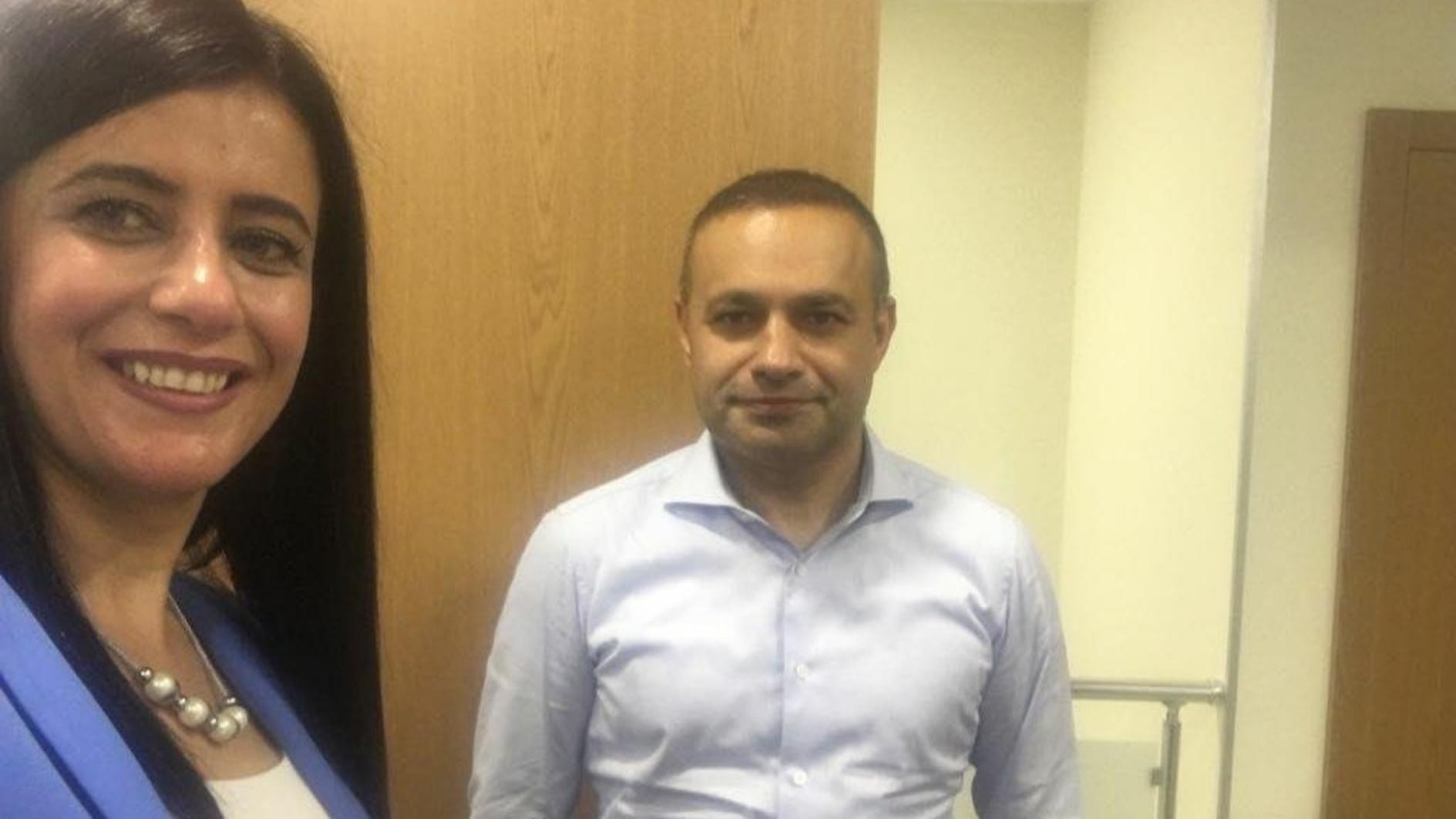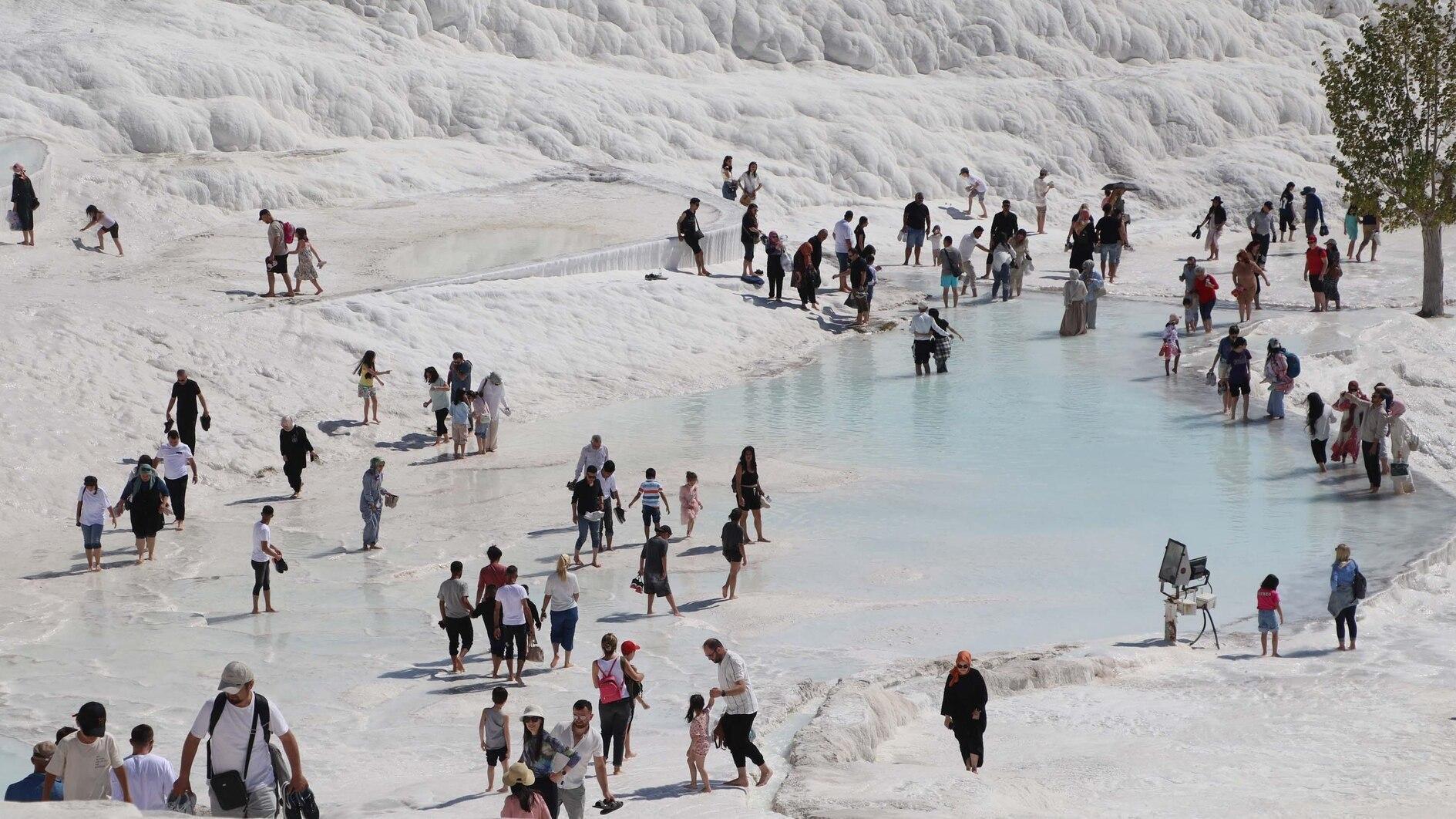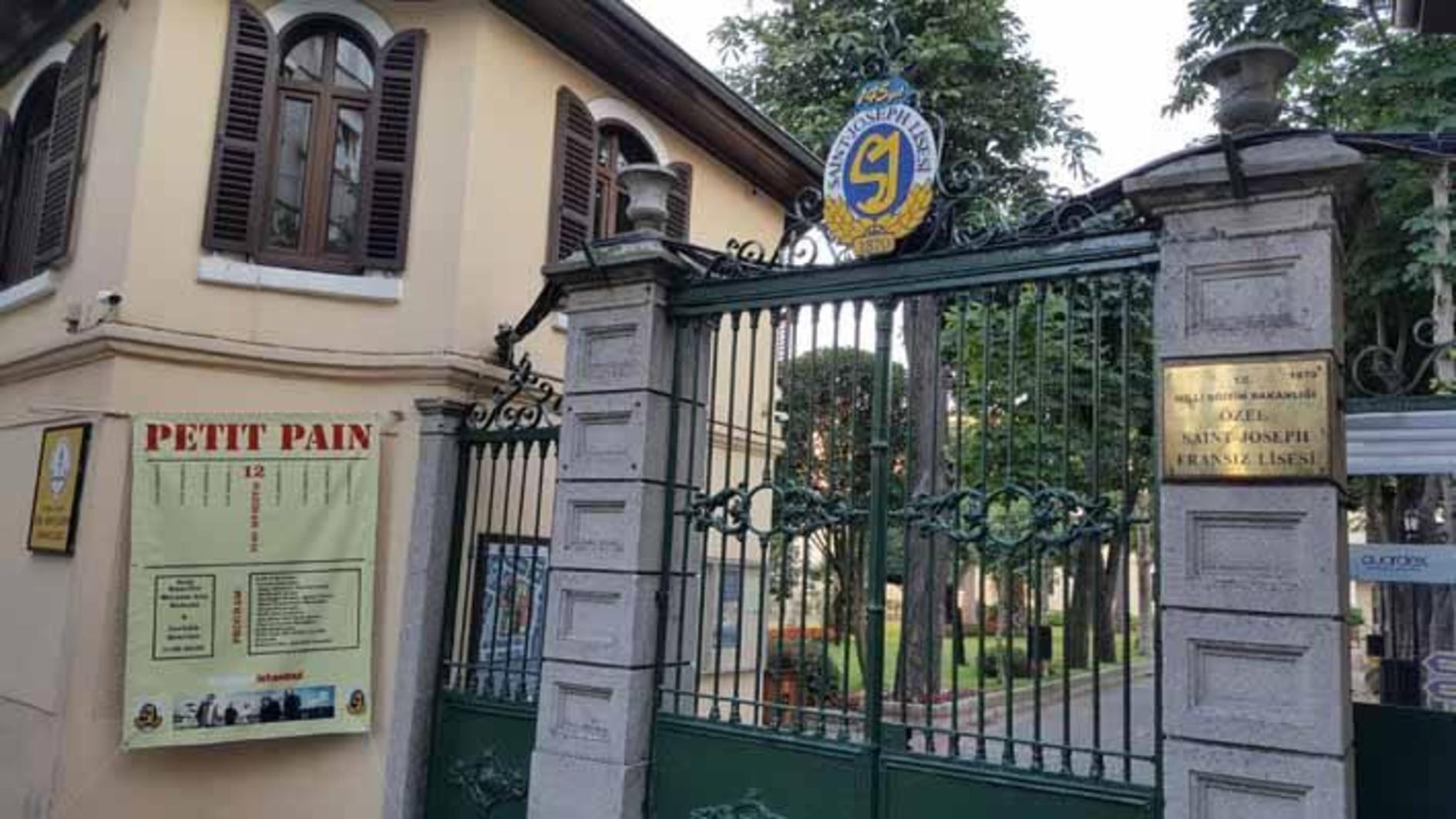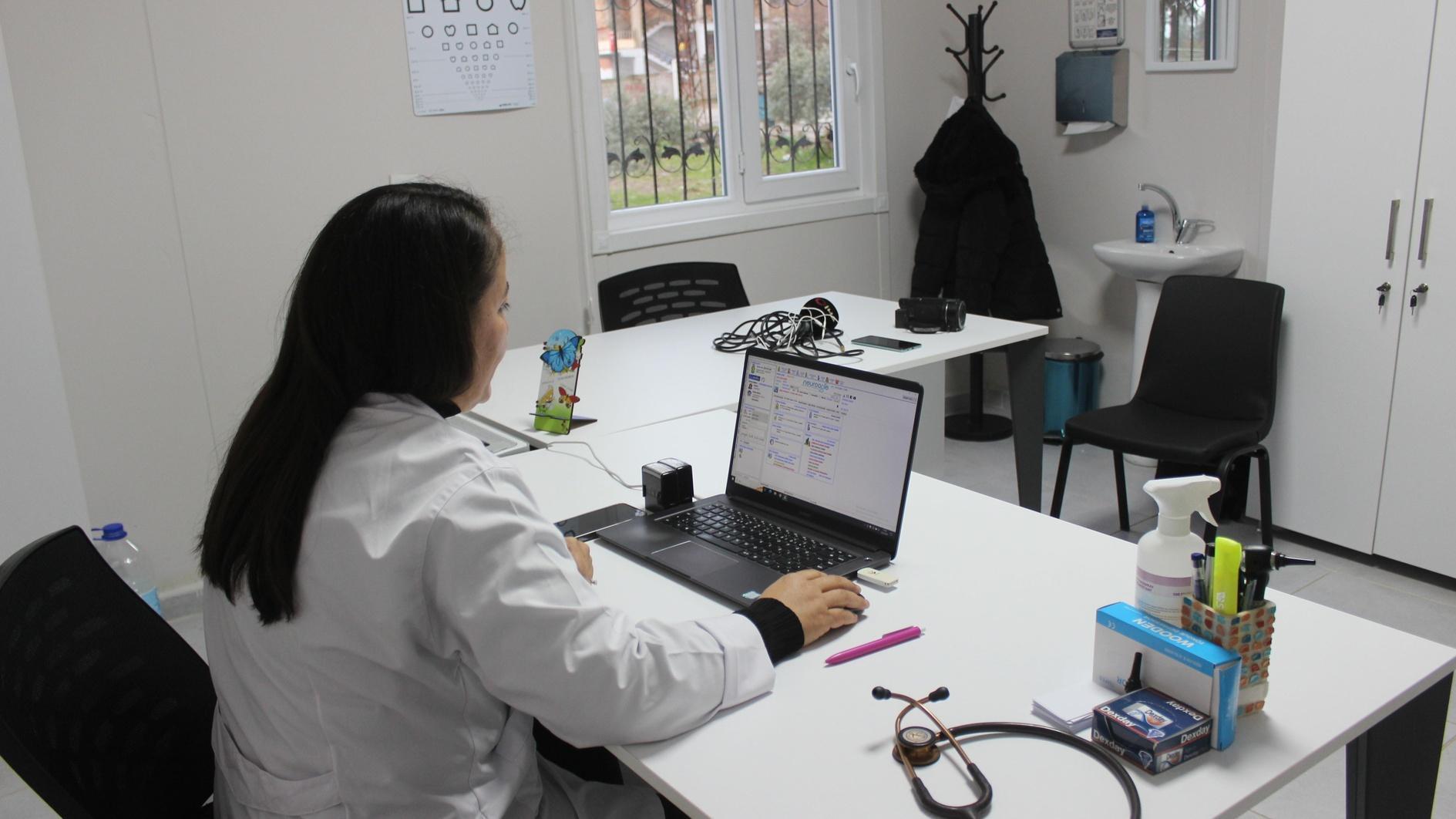Are we the Serbs of Srebrenica?
Belgin Akaltan - belgin.akaltan@hdn.com.tr
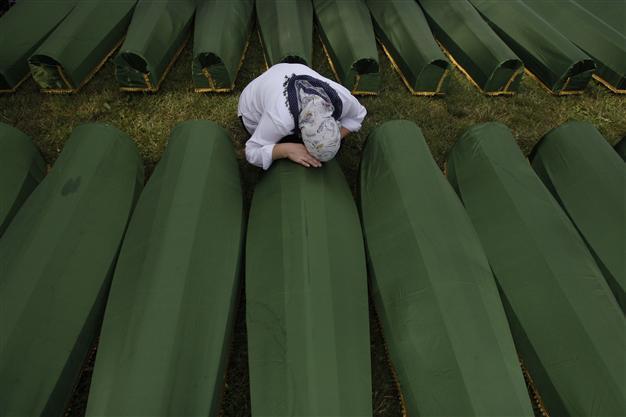
At the memorial center Potocari, near Srebrenica. AP Photo
I have been incubating this piece for a couple of years. I have been turning it from right to left, left to right, upside-down... I have started writing it many times and I did not like it just as many times and started again. This has been going on for a while but I have decided to go ahead, whatever the outcome is, whether I like it or not.First thing, I always put on a playlist from my dear friend, writer, gourmet, radio programmer, academic and jazz-lover Güzin Yalın. I always do that when I have stopovers in writing or when I have stopovers in myself. If I am too lazy, too dumb, too excited, too inspired, too depressed, when ideas and phrases race in my mind, I play the songs she chose for her Mardin piece in particular. Güzin’s playlists have a magical effect on me.
Her music from Turkey tells me about the sadness of this land, the ethnic, religious, sexual and sectarian tragedies the people of this land had to go through… The geography of sorrow, the pain map of my land and my mind…
Yes, I am beating around the bush and not coming to the point.
My main theme is that when there is a murder, there is also a murderer. When there are widespread massacres, then there should also be mass perpetrators. I am saying that 1.5 million victims require at least 1 million committers… For fewer numbers, let’s say for 300,000 or 500,000 deaths, there should again be many, many killers. Why don’t we ever talk about that?
Oh God, again, what and how should I say it? Bear with me, this is difficult…
To call somebody’s ancestors “massacrers” is not easy, especially if they are your own ancestors… Even the letters here are getting heavier…
What I am saying is that the population of the remaining lands of the Ottoman Empire, the pre-Turkey of that time, was around 13 million. Turks, Kurds, soldiers or villagers, or gangs from the mountains, Arabs in Syrian deserts, in the towns on the deportation route, in Ras al-Ayn and ar-Raqqah (the names we hear today quite often associated with the Islamic State of Iraq and the Levant - ISIL), I don’t know how many were involved in the killings of Armenians but logically it should be a lot, maybe up to 5 percent of the population.
I have limited space but with the risk of spending my precious space, I will go back to my Kosovo days, between 2000 and 2002 inclusive when I was in the U.N. mission working for an international organization, The Organization for Security and Co-operation in Europe (OSCE), for capacity and institution building in Kosovo.
The Srebrenica massacre somehow had a different sensitivity when I was in Kosovo, perhaps because I was in an international mission or maybe because I was in a land where people also had suffered from Serbian oppression. One sentence that I will never forget from my mission days was, “Srebrenica did not happen overnight,” pointing to the negligence of the international community.
In the Srebrenica massacre, in the genocidal killing in July 1995, more than 8,000 Bosniaks, mainly men and boys, in and around the town of Srebrenica lost their lives.
Focusing on numbers, thousands of men were killed almost overnight by hundreds of perpetrators; it makes about 200 murders per one Serbian soldier. This is disgusting to talk about but yes, a Serbian soldier testified at the international court who confessed to killing at least 70 Bosniaks.
Then I read an article written by a Serb, which had some valid points. He said the numbers were exaggerated; it cannot be that much. I thought this might be true, otherwise it does not make sense.
Then he argued, if the Serbian army wanted to make ethnic cleansing, why would it separate the men and the women? You would, he said, first kill the women and children if you want to make a race extinct, wouldn’t you? Well, yes and no… And… All right, to that also… But, wait a second; this kind of sounds familiar…
He also wrote that the Bosniaks attacked them first, provoked them and killed them first… Now, wait ANOTHER second here. Do wait a second, please. This also sounds very familiar. I kind of see a trend here.
Maybe there is a standard denial mode in massacres.
Those who want to cover up massacres seem to use the same methods. We have been told many times that the Armenians attacked the Turkish villages first and they massacred the poor Turkish peasants; here are the pictures, poor Turks suffering at the hands of Armenians.
We have been told many times that the numbers were exaggerated; there were not 1.5 million Armenians living in the Ottoman Empire in those times anyway. If we wanted to make them extinct, we would have killed all the Armenians, the ones in Istanbul also.
Then comes my theory that we have heard a lot from the surviving victims, enough to make new generations hate us. I’m sure there are stories from the other side. We have heard how they were killed. What about the stories of how “we killed them?” Are they secret? Do we keep them inside? I’m sure they are somewhere out there…
I really want to know about these killer ancestors. I know it is contrary to the “our-noble-ancestors-did-nothing-wrong” line, quoting Hürriyet Daily News writer Burak Bekdil. But logically, some of our ancestors took part in the Armenian mass killings of 1915.
Looking at how rapidly we generate killers and how some of us and our state have the suitable codes to protect them, immunize them and honor them accordingly, I tend to not believe in the official Turkish stance and believe in the Armenian claims.
https://twitter.com/belginakaltan
http://belgin.akaltan.com



